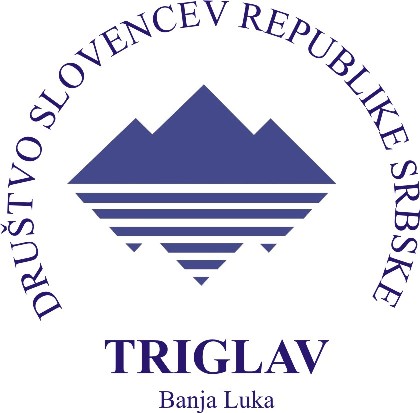On Wednesday, 22 February, and Thursday, 23 February, in Banja Luka, we had an opportunity to attend a presentation by Dušan Tomažič »Slovenian National Minority in Bosnia and Herzegovina focusing on the activities of Slovenian association Triglav Banja Luka.
Dušan Tomažič is an MSc in Geography and history teacher. He is employed with the RTV Slovenia, in the regional centre Maribor. In his master's degree thesis, defended at the University of Tuzla, he did a research in migration of Slovenians to the area of current Bosnia and Herzegovina. Slovenians started settling here as early as in the period of Austro-Hungarian Empire. After the first census (1921) in the Kingdom of Yugoslavia, there were 4,682 people in the territory if BiH who stated their mother tongue was Slovenian, which however does not necessarily mean that they all ethnically decided as Slovenians. The first census in Socialist Federative Republic of Yugoslavia (1948) provides data that in the territory of BiH there lived 4,380 persons decided as Slovenians, which is at least double the data of 1991 where there were only 2,190 Slovenians. What is the current situation? There are 2,229 active members in Slovenian associations, which are not only Slovenian but multinational or multi-ethnical. Unfortunately, data on national minorities in BiH from the census of 2013 have not yet been published whereas different institutions state different data.
Dušan Tomažič studies the issue of Slovenians in BiH from anthropo-geographical viewpoint. He also spoke about how Slovenia supported the activities of associations. Part of the presentation was also some footage he filmed in Banja Luka, Sarajevo, Tuzla and Zenica for the TV show Sledi. Mr. Tomažič was happy to answer questions. Interpretation of the data he obtained during his research made the audience rather interested in the history of Slovenian migration. We are all aware that the numbers hide individual stories – even the ancestors of those who carefully listened to Mr. Tomažič in Banja Luka.
Barbara Hanuš




